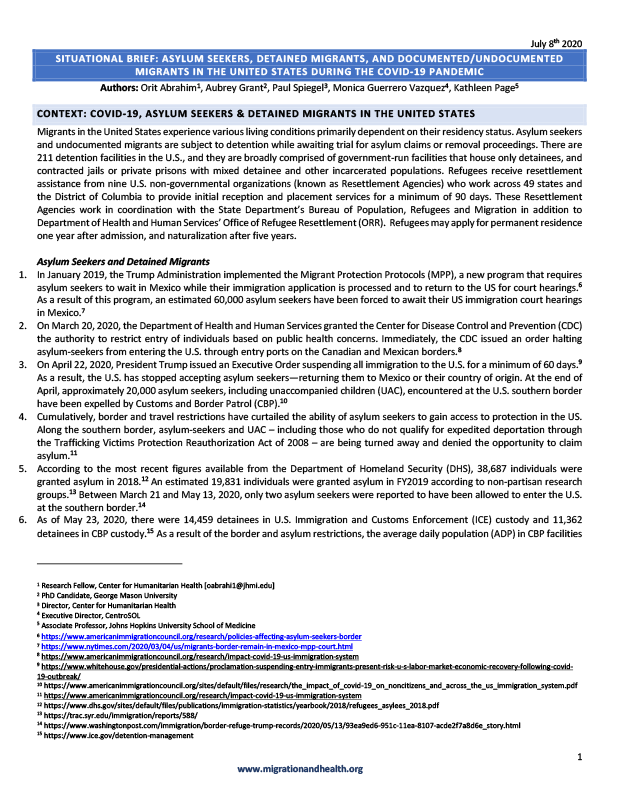Migrants in the United States experience various living conditions primarily dependent on their residency status. Asylum seekers and undocumented migrants are subject to detention while awaiting trial for asylum claims or removal proceedings. There are 211 detention facilities in the U.S., and they are broadly comprised of government-run facilities that house only detainees, and contracted jails or private prisons with mixed detainee and other incarcerated populations. Refugees receive resettlement assistance from nine U.S. non-governmental organizations (known as Resettlement Agencies) who work across 49 states and the District of Columbia to provide initial reception and placement services for a minimum of 90 days. These Resettlement Agencies work in coordination with the State Department’s Bureau of Population, Refugees and Migration in addition to Department of Health and Human Services’ Office of Refugee settlement (ORR). Refugees may apply for permanent residence one year after admission, and naturalization after five years.
Milei y reforma migratoria
El presidente argentino adopta un discurso antiinmigración que imita al de otros Gobiernos de ultraderecha. Fuente: El Pais



